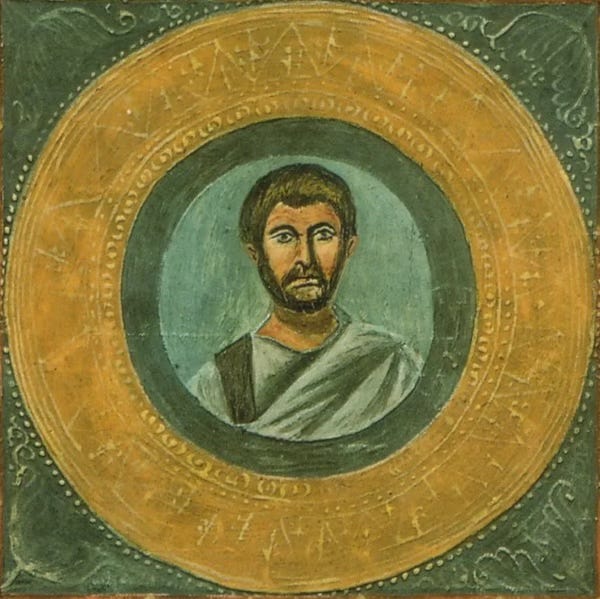Suggested Readings
Manage episode 434150023 series 3588922
The know-how of virtue. How can we be good people who do things for the right reason, when we very often confabulate a good reason for our behavior after the fact? Imagine, for example, that I do not give money to a person in need on the street, and instead rush home. But then, later on, my friend mentions seeing the person who needed help and I express that I saw them too. Then they ask me, ‘why didn’t you help them?’. In these circumstances, we might confabulate. This means that, only upon being asked, do we start formulating an answer to that question. In that way, confabulation is post-hoc. We come up with reasons for our behaviour which protect our positive self-conceptions. So I might say to my friend, ‘Oh I was in a rush and the street was too busy for me to stop!’. This explanation protects my self-concept of still generally being kind and helpful. I explain away this instance with an ill-grounded claim, because in fact the street was not busy at all. This is a core feature of confabulations; they are not appropriately based on the relevant evidence, so they usually make false statements about the world (it is not impossible for them to be true by accident/mere luck). … (New Work in Philosophy)
Racked by pain and enraptured by a miracle cure. Michael Chesebro awoke to the same reality as he did each morning, with pain radiating up his spine and into his shoulders before he opened his eyes. He remained still for a moment, summoning the courage to reach from his bed to his night stand. He rolled onto his back, which was fused together with metal after almost 20 years as a paratrooper in the military. He extended his arm, which he had broken several times while wrangling bulls and horses on his ranch outside Cheyenne, Wyo. Finally, his hand found his cellphone, and he logged on to the online universe where he spent most of his days. … (New York Times)
Stoicism at the dentist. I’ve just come home from the dentist so I thought I’d write a short article while the experience is still fresh in my mind. I always use psychological techniques to help me cope with the pain and discomfort of dental procedures. Today’s appointment was for something pretty minor but I still found it helpful to use Stoicism and some cognitive therapy to manage my discomfort. … (Donald Robertson’s Substack)
Duplicative language (i.e., plagiarism) in Ancient Greece and Rome. Stop me if you’ve heard this before… Nah, just kidding. Plagiarism is in the news and it’s serious stuff. Those who say it’s no big deal have (at best) never had it happen to them. I have, at least a half-dozen times that I’m aware of, and I have to say it does feel invasive and creepy and unpleasant. It’s not so different from being robbed, really, because that’s what plagiarism is. I bet you’ve heard by now that plagiarius is the Latin word for a kidnapper. It’s true, that’s the metaphor: a plagiarist is one who steals a free person and then sells him or her off as a slave. The internet is full of posts that will tell you Martial—a hilarious writer of “epigrams,” i.e. short poems with a witty zinger at the end—was the first to use the word that way. Again, that’s true; his epigram 1.52 is typically cited as evidence. … (Classical Wisdom)
The Philosophy Garden is a reader-supported publication. To receive new posts and support my work, consider becoming a free or paid subscriber.
The vexing problem of the ‘medium friend’. Most of us maintain an informal mental inventory of our friendships, sorting those closest to us, our intimates, from our acquaintances. My friend R. once went a step further. He ranked his friends on a document on his computer. (R. asked that I use his first initial here out of a sense of propriety, knowing it’s taboo to acknowledge even the existence of such a list, let alone to disclose to friends their positions on it.) As a younger man, R. found himself dissatisfied with his social life, which kept him busy yet unfulfilled, and he built his friend hierarchy to diagnose why. He found that he had a small group of first-tier friends, with whom he was happy to spend time under any circumstances. And he had a huge number of acquaintances. But the friends who caused him the most strife — as well as the most inner turmoil, yearning, anxiety and guilt — were those arrayed along the middle levels. Call them the “medium friends.” … (New York Times)
Those About to Die: this mega-budget Roman epic is as close to actual time travel as it’s possible to get. When they do eventually invent time machines, it’s ancient Rome that’s going to be booked solid for months as a destination. Sure, a lot of the people who are “saving to go to Tokyo” at the moment will go to feudal Japan and bring back a load of hand-crafted armour, but they will be in the minority. Some people will simply use it to go back to London in the 90s and watch an episode of The Big Breakfast being filmed before having sex with Robbie Williams. I’ll drag my girlfriend to Victorian Whitechapel – “No, it’s good! They have trains, and smog! We can wear grey clothes and solve that murder!” – and the whole trip will be so underwhelming I’ll have to take us on a big expensive fortnight in 60s New York as penance. … (The Guardian)
What do conspiracy theorists do when proved wrong? A podcaster said President Biden was “dying or possibly already dead.” A host on Newsmax requested “proof of life.” And a former Republican congressman simply asked: “Anyone else think Biden is dead?” When Mr. Biden appeared again late last month after a brief isolation from Covid-19 — still very much alive — many didn’t backtrack or correct their false implications. NewsGuard, a company that monitors online misinformation, identified 19 prominent accounts on X that in July shared the idea that Mr. Biden was potentially dead or close to death. The New York Times followed those accounts to see how they handled news that Mr. Biden was alive and found that most ignored it or stoked more conspiracy theories. Only a few admitted they had gotten it wrong. … (New York Times)
How Stoicism inspired modern psychotherapy. The self-help movement has evolved into a multi-billion dollar industry in the 21st Century, as bookstores are continually replenished with manuals advertising previously undiscovered secrets of achieving happiness. These publications, however, along with newly refined versions of psychotherapeutic methodologies promising groundbreaking clinical impact, are often simply repackaging wisdom found in the ancient philosophical school of Stoicism; sometimes acknowledged, but more often not. Stoics were the first psychotherapists, and advocated for the reduction of suffering (today successfully done with Cognitive Behavioral Therapy and Rational Emotive Behavior Therapy) and the promotion of Eudaimonia (a rare point of emphasis in modern treatment plans, though Positive Psychology has begun to successfully change this). Psychotherapeutic practice is caught in a loop of rediscovering truths that have been known for millennia, perpetuating a cycle of stagnation in the field of mental health that masquerades as innovation. The present article is a call to disrupt this cycle, and instead reconnect with Stoicism’s ancient guidance on how to flourish and live excellently, rather than continue to resell its wisdom using other names. … (Discover Psychology)
The key to longevity is boring. The other day, someone at my gym approached me and lamented that he could spend nearly every waking hour of his life executing the countless viral health and longevity recommendations popularized by internet influencers and podcast hosts, and he’d still feel that he is falling behind. He was alluding to a complicated and often contradictory menu of “biohacks” (shortcuts for improving our biology, all of which lack scientific rigor) and “protocols” (highly specific regimens for exercise, sleep and nutrition). In this era’s search for eternal youth, there are supplements, green powders, cold plunges, the supposed benefits of low-angle morning sunlight, continuous glucose monitors for non-diabetics, box breathing, the proposed benefits of rapamycin (a drug originally used in organ transplants being adapted for longevity), and countless restrictive diets that range from avoiding seed oils to becoming aware of the “hidden dangers” in fruits and vegetables to shunning nearly everything but meat. … (New York Times)
20 episodes














